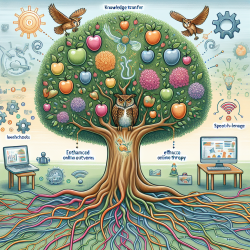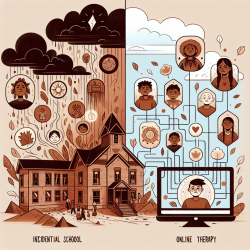As practitioners dedicated to improving children's lives, we often find ourselves at the intersection of clinical practice and ethical considerations. A recent qualitative study titled A qualitative study of child participation in decision-making: Exploring rights-based approaches in pediatric occupational therapy provides critical insights that can enhance our practice. This study underscores the importance of incorporating children's voices in the decision-making process, particularly in goal-setting within pediatric occupational therapy.
Key Findings
The study involved semi-structured interviews with 17 participants, including six children, five parents, and six occupational therapists. Thematic analysis revealed three primary themes:
- Goal-setting experiences: The process is often informal and adult-driven, with children’s voices frequently overlooked.
- Adults as gatekeepers or defenders: Therapists and parents are often unaware of Article 12 of the United Nations Convention on the Rights of the Child, which mandates child participation in decisions affecting them.
- Decision-making in context: Service delivery issues, such as long waitlists and resource constraints, significantly impact the ability to implement child-centered practices.
Practical Applications
To foster better outcomes for children, consider the following strategies based on the study's findings:
- Adopt a Rights-Based Approach: Familiarize yourself with Article 12 of the United Nations Convention on the Rights of the Child. This framework emphasizes the importance of listening to and incorporating children's views in decision-making.
- Use Standardized Tools: Implement tools like the Perceived Efficacy and Goal Setting System (PEGS) and the Canadian Occupational Performance Measure (COPM) to formalize the goal-setting process, ensuring that children’s voices are heard.
- Enhance Communication: Provide clear, age-appropriate information to children about their therapy, ensuring they understand and can participate meaningfully in decision-making.
- Build Therapeutic Rapport: Establish a strong, respectful relationship with both children and their parents. This rapport can facilitate more effective and inclusive decision-making.
Conclusion
Empowering children in the decision-making process is not just an ethical obligation but a practical necessity for effective therapy. By adopting a rights-based approach and utilizing standardized tools, we can ensure that our practice is truly child-centered.
To read the original research paper, please follow this link: A qualitative study of child participation in decision-making: Exploring rights-based approaches in pediatric occupational therapy.










